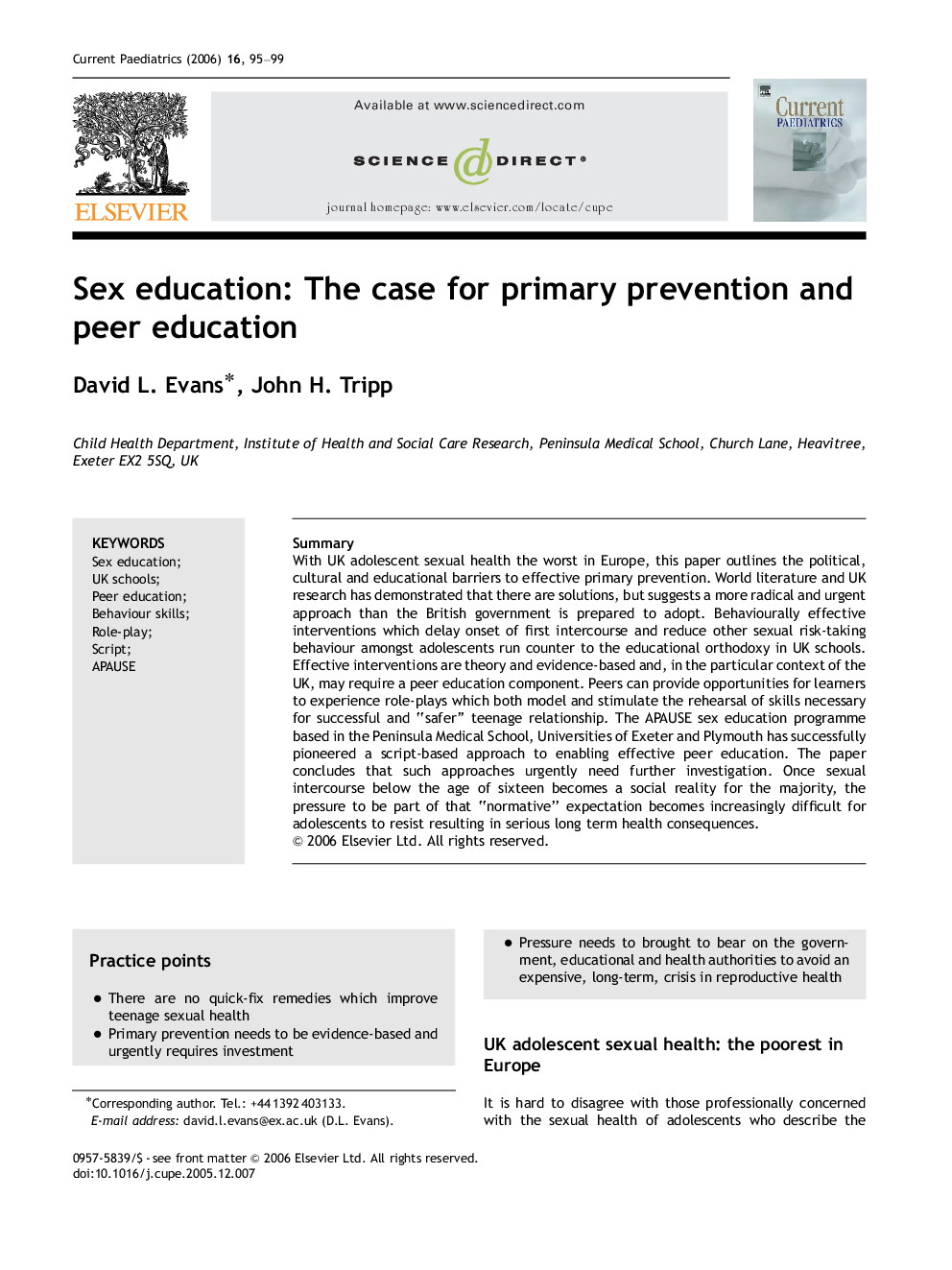| Article ID | Journal | Published Year | Pages | File Type |
|---|---|---|---|---|
| 4152281 | Current Paediatrics | 2006 | 5 Pages |
SummaryWith UK adolescent sexual health the worst in Europe, this paper outlines the political, cultural and educational barriers to effective primary prevention. World literature and UK research has demonstrated that there are solutions, but suggests a more radical and urgent approach than the British government is prepared to adopt. Behaviourally effective interventions which delay onset of first intercourse and reduce other sexual risk-taking behaviour amongst adolescents run counter to the educational orthodoxy in UK schools. Effective interventions are theory and evidence-based and, in the particular context of the UK, may require a peer education component. Peers can provide opportunities for learners to experience role-plays which both model and stimulate the rehearsal of skills necessary for successful and “safer” teenage relationship. The APAUSE sex education programme based in the Peninsula Medical School, Universities of Exeter and Plymouth has successfully pioneered a script-based approach to enabling effective peer education. The paper concludes that such approaches urgently need further investigation. Once sexual intercourse below the age of sixteen becomes a social reality for the majority, the pressure to be part of that “normative” expectation becomes increasingly difficult for adolescents to resist resulting in serious long term health consequences.
